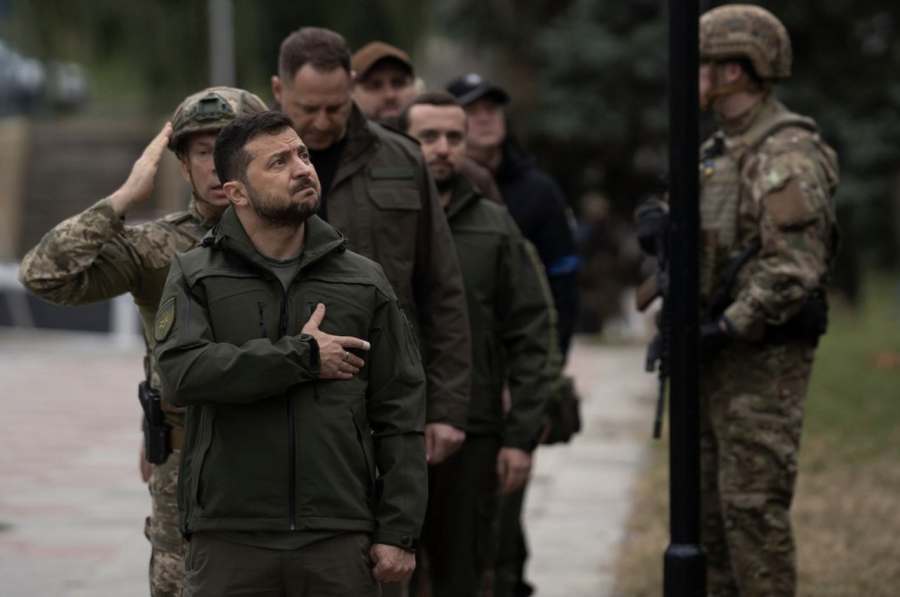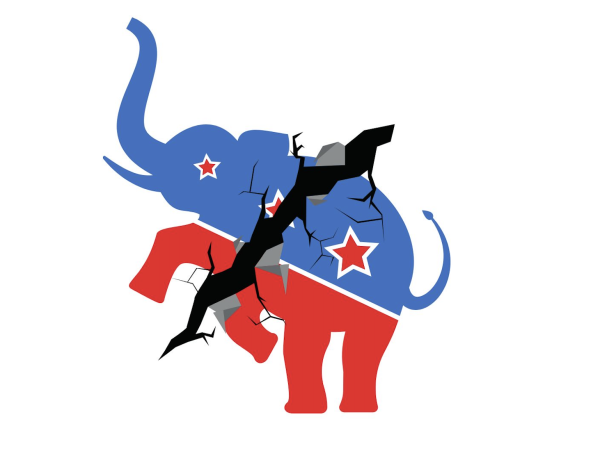Ukrainian forces reclaim major territory in Kharkiv
September 22, 2022
Ukraine recaptured 3,090 square miles of territory previously controlled by Russian forces following a lightning offensive in the northeastern region of Kharkiv, this being the most successful military operation since the war began in February. Russian soldiers were forced to flee eastward, dealing a major blow to Moscow and its campaign to occupy Ukraine.
This comes as one of the biggest developments in the ongoing conflict after months of back-and-forth fighting between the two countries. In late February, when the invasion began, Russian troops appeared dominant, taking over much of eastern Ukraine in a matter of weeks and waging an all-out military offensive from land, air and sea. For months, the war stretched on with no clear end in sight as the two former Soviet countries traded blows. The recent triumph against Russia shows signs of a potential Ukrainian victory in the near future, although the roadmap for such a scenario is unclear.
On Sept. 14, Ukrainian President Volodymyr Zelenskyy traveled to the newly liberated Izyum to deliver a speech to Ukrainian soldiers only hours before Russian airstrikes rained down on the city.
“We thank all of you for liberating our state from the enemy—from the terrorists of the Russian Federation and from the traitors who betrayed our state with the bills of artificial republics,” Zelenskyy said. “The last few months have been extremely difficult for you. Therefore, I am asking you: Take care of yourself; you are the most precious we have.”
While he acknowledged Ukraine’s battlefield successes, President Joe Biden remained hesitant to send long-range guided missiles to the country to prevent further escalation from the Russian side. Still, the United States has remained committed to supporting their war effort; the White House announced a $600 million spending package on Sept. 15 that would arm Ukraine with weapons and combat equipment.
“To meet Ukraine’s evolving battlefield requirements, the United States will continue to work with its Allies and partners to provide Ukraine with key capabilities,” the Department of Defense announced in a press release.
The news of Ukraine’s advancements has put Russian President, Vladimir Putin, in a difficult position as even his allies abroad have voiced discontent with the war in recent weeks. The New York Times reported that Indian Prime Minister Narendra Modi told Putin that “Now is no time for war,” in their regional summit in Uzbekistan on Sept. 16. “Today we will get a chance to discuss how we can move forward on the path of peace,” Modi said.
Chinese President Xi Jinping, one of Putin’s closest allies on the world stage, also appeared wary to show support for the invasion claiming he had “questions and concerns” regarding the war in Ukraine. These remarks came weeks after reports of declining support for the invasion from within Russia.
“Xi Jinping is… backing away from that unqualified, unconditional framing of China’s support,” University Political Science Chair Amy Freedman said. “But I wouldn’t necessarily read it as a lack of support for Russia. Putin, Xi Jinping and Modi are going to continue to hammer home this idea that these shortages and the pain that’s felt around the rest of the world are the West’s fault.”
Despite this, Russia has remained defiant in its conquest of its western neighbor. On Sept. 20, the Kremlin announced it would begin holding “referendums” in the occupied Luhansk and Donetsk territories to determine whether eastern Ukraine should be annexed by Russia. The announcement, reminiscent of the 2014 annexation of Crimea, prompted backlash from the international community. White House National Security Adviser, Jake Sullivan, called the referendums a “sham,” stating, “the United States will never recognize Russia’s claims.”
Freedman remained skeptical about a ceasefire anytime soon. “The question is, what would Putin be willing to settle for?” Freedman questioned. “He has to be able to present whatever the end is as a gain for Russia.”
As the war drags on, both sides have remained committed to the cause, making attempts for diplomacy difficult.
This is a developing story.













